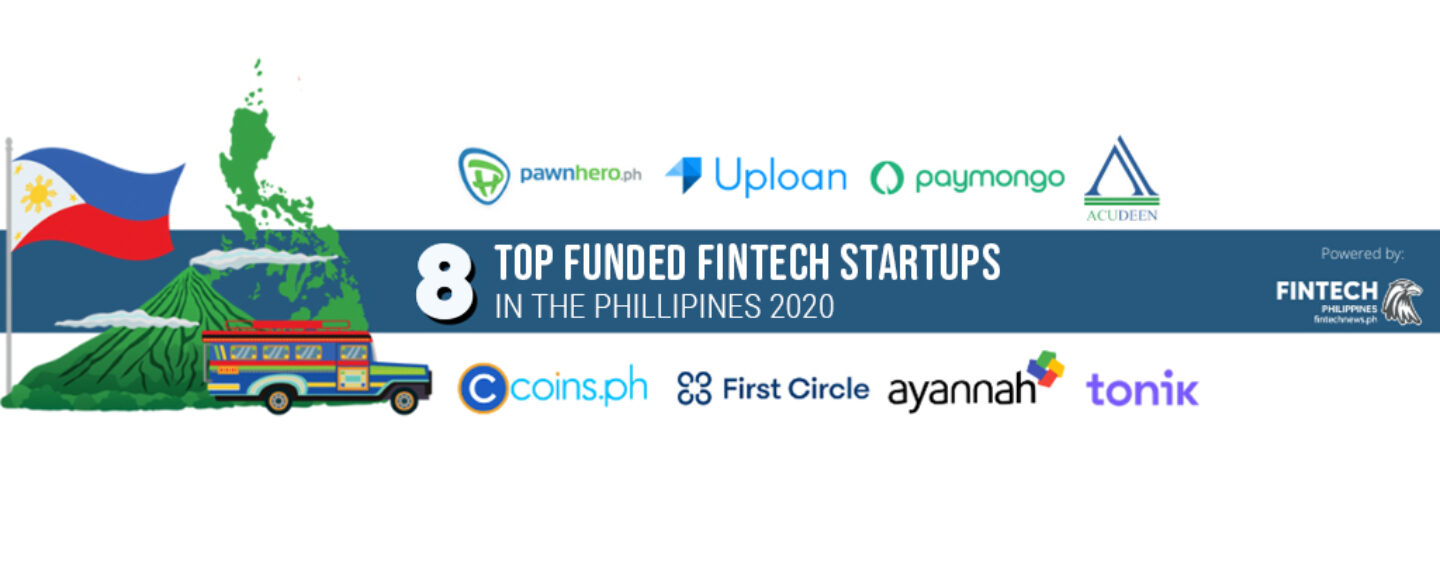The Philippines is home to a striving fintech industry comprising more than 190 ventures operating in lending, payments, credit scoring, and more and the top funded fintech startups in the Philippines gives us a sense of what investors and startups believe to the biggest opportunities within the ecosystem.
As the momentum continues, we look today at some of the Philippines most successful and most well-funded fintech startups. For this list, we’ve used figures provided by the companies themselves or from startup data providers such as Crunchbase, Dealroom and Pitchbook.
Coins.ph – US$82 million

Coins.ph is a blockchain-backed platforms whose mobile app provides consumers with direct access to banking and digital payment services, including local and international remittances, mobile air-time, bill payments, game credits, and online shopping.
During two of its Series A funding rounds, coins.ph closed a total of US$ 10 million led by Accion Frontier Inclusion Fund in 2016 and Naspers in 2017.
In January last year, Indonesian ride-hailing company Gojek, according to sources had bought the majority stake in Coins.ph for US$72 million in a bid to gain entry into the Philippines market.
First Circle – US$28.5 million
First Circle is a fintech company accredited by the Securities and Exchange Commission (SEC) and the Department of Trade and Industry (DTI) that supports businesses in the Philippines by providing short-term financing. The company’s platform offers collateral-free short-term working capital and trade financing, enabling small and medium enterprises (SMEs) to grow and improve the course of opportunity.
First Circle has raised US$28.5 million in funding so far, including a combined US$2.5 million in seed funding (two rounds) and a US$26 million Series A in 2018.
Tonik – US$27 million
Tonik is an upcoming digital bank that aims to address the US$140 billion retail deposit and US$100 billion unsecured retail lending opportunities in the Philippines. The startup plans to provide a range of retail financial products, including deposits, loans, current accounts, payments, and cards on a highly secure digital banking platform.
Founded in 2018, Tonik will be launching operationally in 2020 in the Philippines on the basis of its own bank license, with support and R&D functions based in Singapore and India. It has raised US$27 million in funding so far, including a US$21 million Series A, and a US$6 million funding round.
PayMongo – US$14.7 million
PayMongo is a payment gateway that allows businesses to easily accept online payments from their customers online via credit card, e-wallets and over-the-counter (OTC).
The startup provides three main products: PayMongo Links, which allows businesses to send a link that their customers can use to pay through multiple payment options; PayMongo API, which allows businesses to integrate directly the solution with their website and app; and e-commerce plugins, which allow them to integrate directly with their Shopify, Woocommerce or Magento websites.
PayMongo has raised US$14.7 million in funding so far, including a US$12 million Series A funding round, and US$2.7 million in seed funding.
Uploan – US$10.6 million
Launched in 2017, Uploan targets the salary deducted lending market, offering institutional and retail investors an alternative way of investing. Operated by New Cross Credit Gate, the platform provides fast, flexible, and convenient loan solutions to Filipino employees, focusing on financial wellness options that fit each employee’s needs.
Uploan claims it is the first company to have developed its own credit score model to deliver fair, secure, accurate, low interest, same-day salary deducted loans for employees.
The startup raised US$10.6 million in a Series A funding round in February 2020.
PawnHero – US$9.7 million
PawnHero is an online pawnshop in Southeast Asia that aims to solve the problem of expensive credit for base-of-the-pyramid consumers in emerging markets. It was first launched in the Philippines in February 2015 to meet the quick loan needs of the country.
PawnHero provides a convenient way of overcoming short-term cash needs once customers decide to pawn their valuable items. Customers simply need to upload pictures of the item and describe it. The system then gives an appraisal within minutes. Upon acceptance of the estimate, the user can either schedule a pick up, or drop off the item at a pickup slot. Once the item is received, the loan is paid. When the loan is repaid, the item is shipped back fully insured and free of shipping charge.
PawnHero has raised at least US$9.7 million in funding so far, including a US$9.7 million financing deal in 2017 and an undisclosed seed round in 2016.
Ayannah – US$8 million
Ayannah provides digital financial services to the world’s emerging middle class, most of whom are migrants or unbanked. Ayannah has built a stack of innovative digital financial services from payments, commerce and analytics on the social and mobile web, that have enabled millions of online and mobile transactions.
Ayannah offers four main products for its users: Sendah, a business-to-customer (B2C) gift remittance service; Sendah Direct, a business-to-business (B2B) payment platform; Sendah Remit, a bank grade software-as-a-service (SaaS) that allows interoperable international and domestic remittance transactions across different networks; and Kaya Credit, a credit scoring service using artificial intelligence (AI) to incorporate behavioral data to assess the Philippines’ unbanked population.
Ayannah merged with India-based payments company Electronic Cash and Payment Solutions (ECAPS) in June. The merged entity, called Ayannah Global, is based in Singapore and aims to raise US$30-50 million in a Series B round. Prior to that, Ayannah had raised about US$8 million in funding, according to data from Crunchbase and Dealroom.
Acudeen Technologies – US$6 million

Acudeen Technologies is a peer-to-peer (P2P) marketplace for receivables discounting where SMEs can sell their invoices to a network of buyers and receive cash within a few days. The company’s platform provides an alternative way for funders to diversify their income, thereby enabling businesses to boost cash flows quickly.
Acudeen Technologies has raised at least US$6.5 million in funding so far, including a US$6 million financing deal with Riza Microbank, and US$500,000 in seed funding from Seedstars. In addition to that, the startup completed a US$35 million initial coin offering (ICO) in 2018 to fund the development of its AssetChain blockchain project.















